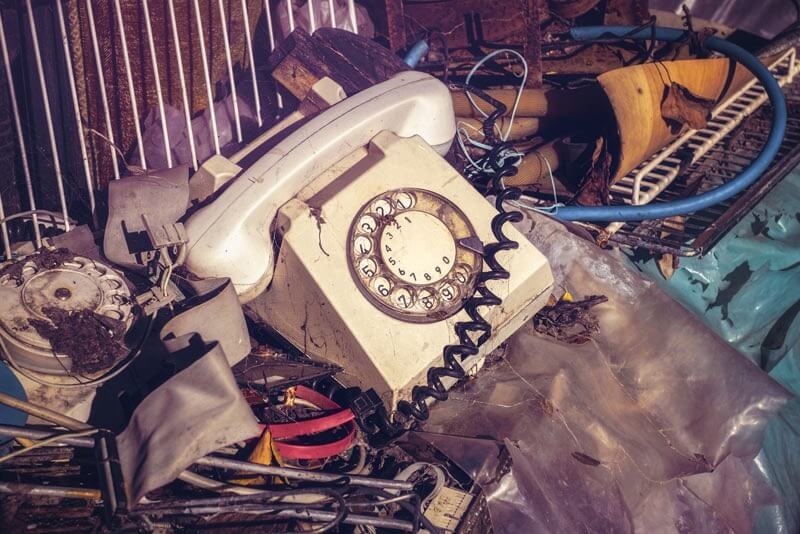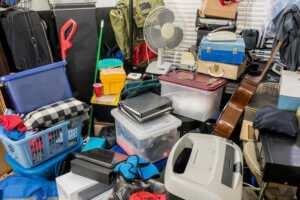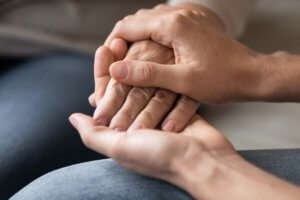BLOG

Understanding How To Help A Hoarder
Hoarding is a serious mental health condition that often starts from ages 11 to 15 and can worsen with age. A hoarder is someone who typically experiences severe distress at the thought of discarding items around them. Hoarding behaviour can often be difficult for others to understand and often leads to a range of other emotional, social, financial and legal issues for hoarders and their families. Ranging from mild to severe cases, hoarders may not even realise that they have a problem or need help with hoarding clean up.
Because of a hoarder’s inability to throw things away, their undiscarded items accumulate over a long period, creating overly cramped and potentially dangerous conditions in their living space. Hoarding can also lead to an interruption in day-to-day activities.
What Things Do People Hoard?

People hoard all kinds of things such as newspapers, mail, books, clothing, garbage, rotten food and valuable items. In rarer cases, people will also hoard animals or human waste.
Why Do People Hoard?
To a hoarder, the reasons for hanging onto their belongings are justified even though many of us have difficulty understanding how a person can live in that way.
Hoarders will often hang on to their belongings for the following reasons:
- They believe an item will be useful or valuable later on
- The sentimental value they’ve placed on an item
- They believe an item is irreplaceable
- The item was originally purchased at a discount (and considered a bargain purchase)
How To Recognise A Hoarder: Symptoms & Behaviours
At first instance, you may not know that someone is a hoarder. You could be living next door to, or even work with one and not even realise.
If you suspect that someone you know is a hoarder but aren’t quite sure, there are a few signs that can indicate that someone has this condition. Below are some symptoms and behaviours commonly experienced by hoarders:
- Feeling the need to save items and having difficulty with throwing them away or getting rid of them
- Experiencing anxiety when discarding items
- Feeling overwhelmed by the amount of possessions in their home
- Excessively acquiring items that are not needed
- Losing bills or other important documents in the clutter
- Continually accepting free items such as brochures and samples
- Building up of clutter in their living space to the point where rooms are uninhabitable
- Purchasing things because they are discounted or with the intention of stocking up
- Difficulty with categorising or organising possessions
- Refusing to let people into their home to visit or make repairs
Negative Effects Of Hoarding
Severe clutter can have a flow-on effect from the hoarders themselves to their friends, families and those in neighbouring areas. Some of the detrimental effects of hoarding include:
- Having a negative impact on the health and safety of those living in the home by:
- Causing health issues as a result of living in unsanitary conditions
- Creating structural damage to the property
- Becoming a dangerous fire hazard
- Causing injuries or even deaths if the weight of the items collapse
- Evictions from the property or legal action against the hoarder
- Creating conflict between the hoarder and their friends and family over the hoarding behaviour, often leading to separation, divorce and even a loss of child custody
- Financial difficulties
How To Help A Hoarder Clean Up

Bear in mind that hoarders may not be open to receiving help from friends or close family members. When helping a hoarder, some Do’s and Don’ts to keep in mind include:
- Do acknowledge that a hoarder may not want to accept your help and that this is something you can’t force
- Do have some sympathy for their situation and try to understand their attachment to their possessions
- Don’t discard their belongings without their permission – seek their trust and offer to help
- Do be patient – this is the key to successfully assisting an individual with less conflict
- Don’t push them to seek professional medical help and treatment. Try to encourage instead.
- Do offer to assist with helping them access a compassionate cleaning service when they are ready
Squalor & Hoarding Clean Up Help
If you or someone you know is ready to receive professional help with squalor or hoarding clean up, reach out to the team at National Trauma (NTCSC).
With over 30 years’ experience, our Australia-wide specialist cleaners are compassionate and understanding. And we work hard to ensure that our entire cleaning process is carried out in a way that alleviates further stress and worry on your part.
We’re here to help whenever you need us day or night. Call any time 24/7 on 0488 007 675 or go online to ask about our hoarding clean up service and get an obligation-free quote.

